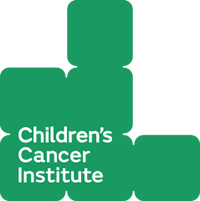Prof Murray Norris, Prof Michelle Haber
Applications accepted all year round
Competition Funded PhD Project (Students Worldwide)
About the Project
Although modern combination chemotherapy has significantly improved survival rates for many childhood cancers, the outlook remains dismal for a majority of children with advanced stage neuroblastoma. These patients frequently display alterations in the cancer-causing gene MYCN. In order to improve their survival, alternative treatments are urgently required. MYCN has a clearly established role in driving the development of this disease, yet, the critical molecular interactions involving this master gene regulator have not been sufficiently well defined to allow a clear understanding of how neuroblastoma develops. Using pre-clinical models and genome-wide technology, we have discovered a loss-of-function mutation in a gene that can completely block neuroblastoma growth.
The gene is known to encode a non-DNA binding transcriptional regulator and importantly has not previously been implicated in neuroblastoma development or MYCN ongogenesis. However it has an established role in specific adult cancers. We hypothesise that this gene regulator forms a complex with MYCN to drive the expression of other cancer-promoting proteins and, as a result has a critical role in the initiation and development of neuroblastoma.
This project will utilize a range of molecular and cellular technologies to investigate and understand the mechanism(s) behind the function of this complex. Given the current paucity of understanding of the processes involved in neuroblastoma initiation and development, these studies have the potential of elucidating an entirely novel approach to the treatment and, ultimately, prevention of
this refractory childhood malignancy.
PhD students at Children’s Cancer Institute are enrolled through the UNSW Faculty of Medicine, School of Women’s and Children’s Health, Centre for Childhood Cancer Research (Program code 1825, Childhood Cancer).
Funding Notes
Students must obtain a scholarship that will cover living expenses and tuition fees.
For information on the UNSW application process (including scholarships) visit https://research.unsw.edu.au/how-apply-enrol-research-degree
Additional support
A top-up supplementary award of $6,000 per annum to students who have been awarded a competitive scholarship. This will be awarded to students where the scholarship is equivalent to an Australian Postgraduate Award (RPA) or University Postgraduate Award (UIPA).
The Josee Hilton PhD Excellence Award is a competitive top up scholarship of $10,000 per annum offered to our top ranking new PhD student annually.

 Continue with Facebook
Continue with Facebook

